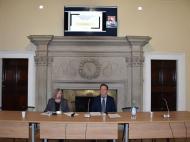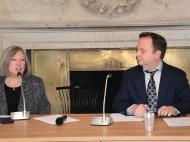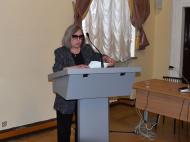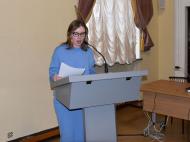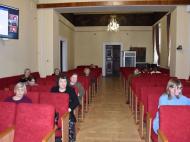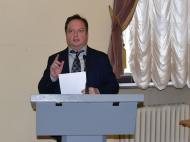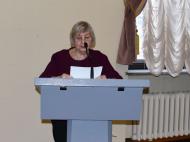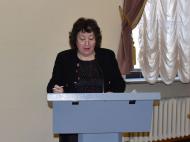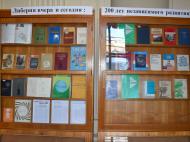November 16, 2022 Scientific conference with international participation "Liberia yesterday and today: 200 years of independent development"
RUSSIAN ACADEMY OF SCIENCES
INSTITUTE FOR AFRICAN STUDIES
|
30/1 ул. Спиридоновка, Москва, 123001 |
 |
30/1 Spiridonovka str., Moscow, 123001 |
On November 16, 2022, a scientific conference was held at the Institute for African Studies of the Russian Academy of Sciences on the topic “Liberia yesterday and today: 200 years of independent development”. The choice of the subject of discussion, as can be seen from the name of the forum, was because in 2022 this West African state celebrated 200 years since the appearance in 1822 on its current territory of the first settlements created by freed from slavery American blacks who arrived in West Africa from the USA and in 1847 founded the independent Republic of Liberia. The country turned out to be one of two (the second is Ethiopia) on the African continent that did not have a colonial past.
In addition to the staff of the Institute for African Studies, the conference was attended by teachers and students of Russian universities (RUDN University, Kazan University of Management "TISBI") and representatives of the Russian Ministry of Foreign Affairs.
A wide range of issues of the political and economic development of Liberia during the years of the First (1822 - 1980) Republic (Tatyana Denisova, Nadezhda Khokholkova) and at subsequent stages of the formation of the state was considered. The nature of relations between Liberia and the USSR/RF (Alexander Mezyaev), Liberia and the USA (Sergey Kostelyanets), Liberia and China (Tatyana Deich) are analyzed; the role of religion in the social and political life of the country (Nailya Fakhrutdinova); the causes and prerequisites of Liberian wars and conflicts, as well as the features of peacekeeping and post-conflict reconstruction (Aleksey Shipilov, Alexander Zhambikov); the specifics of the formation of the institution of political leadership (Inna Rybalkina, Kabuswe Mulenga), etc.
Much attention was paid to the development and current state of the economy of Liberia (Evgeniya Morozenskaya, Lyudmila Kalinichenko, Natalia Matveeva, Vladimir Pavlov). The participants also focused on the problems of the formation of healthcare systems (Nina Grishina), education (Valentina Gribanova), environmental protection (Nina Grishina), and culture (Nina Grishina).
The overall conclusion was that, despite the endless political upheavals that Liberia has experienced over its 200-year history, most of it in recent decades, the country has significant economic potential and the ability to maintain long-term (albeit relative) political stability.








